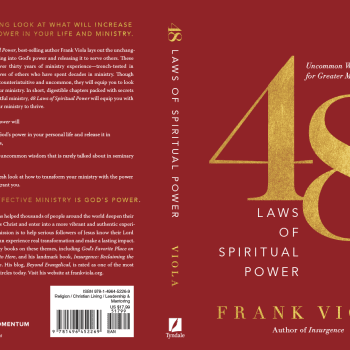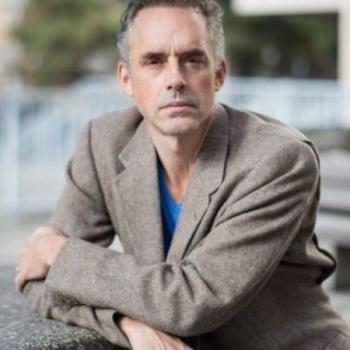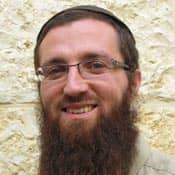Living a Choice-Based Life
For most of his life, my grandfather smoked a pipe, and his whole family hated it. However, my uncle also smoked here and there, and so he became my grandfather's de facto family ally. Around my grandfather's 58th birthday, he started smoking more heavily. Even his "ally" started to get concerned with this latest increase. So while my grandfather was reading his newspaper and smoking his pipe, my uncle went over to him and said gently, "Dad, I think it's getting to be a bit much." My grandfather looked up from the newspaper, looked him in the eyes, put down the pipe, and went back to reading his paper. He never picked that pipe up again for the rest of his life.
The Kabbalists teach, "Nothing stands in front of the will." All along my grandfather knew smoking wasn't good for him, but when he willed it—it was like something clicked—and after forty-five years of smoking, he put the pipe down for good. This is what the Sages referred to as true strength when they taught, "Who is the strong person? The one who conquers his inclination." Psalms 90 states, "The life of man is seventy years; and if he is strong eighty years." My grandfather lived to the age of eighty.
The Kabbalists have always taught that the mind is the source of all pleasure and pain. Therefore if we get our mind and our perspectives in order, everything should flow from there.
Making the Point
However, while our philosophy determines what we know we should do, our will does more to determine what we actually do. The Hebrew word for "will," ratzon, and the Hebrew word for "source," makor, have the same numerical value, thus emphasizing the connection between the two—that the source of all of a person's actions lies in his will. Similarly, the Torah states, "And you should know today [that there is One God], and you should return [this knowledge] onto your heart." According to this verse, a person can figure out that there is an Infinite Creator on any particular day. The ongoing spiritual work, however, is in taking this knowledge and infusing it into one's heart. To know is a good start, but if one only knows it and he doesn't feel it, it will often be difficult to act on it. We have all experienced this in some aspect of our lives. We know what the right thing is to do, but in order to act on it we need the point driven home to us. We have to really feel it.
Once a girl came to me who had been dating a guy on and off for a while. It was a rocky relationship, and she didn't know what to do with it. She said she loved him and couldn't imagine life without him. So we talked about all the issues for a while. It seemed that this relationship was an attachment or addiction rather than true love. And I proceeded to explain to her point by point why I thought the relationship would not succeed and why she needed to end it so she could move on with her life. However, most people can't handle this kind of directness, especially when it comes to affairs of the heart. So I asked her to picture a close friend of hers, one whom she really cared about and had been close to for a very long time. Then I said to her, "Imagine that she came to you looking for help and advice, and she told you exactly what you just told me. What would you tell her to do?" She looked down. Then she looked up at me again. She knew what had to be done.
Time and again, we object to advice on the basis of, "You don't really get it because you're not in my shoes," but more often than not it is precisely the fact that they are not in our shoes that preserves their objectivity over ours.
Personal Miracles
The truth is that, according to Kabbalah, for a person to choose to act with his mind (rational) over his heart (emotional) is in itself miraculous. When we speak of miracles, we are talking about occurrences that override the natural law. The same can be said for a person who acts to override his "nature." As we elevate ourselves by making these mind-oriented choices, our humanity becomes apparent; this is the Godly side of ourselves that distinguishes us from the animal kingdom. Hence, one's soul rules over one's baser nature, utilizing the power of the will. This is what it means to be spiritual in its truest and most basic sense. And this is the point at which self-realization begins—when acting human and thereby actualizing one's human potential.
12/2/2022 9:02:50 PM





